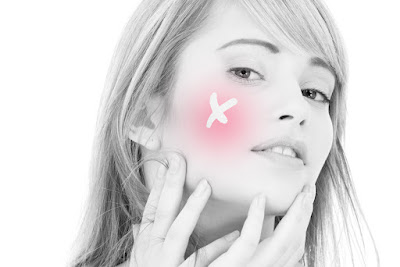We’ve
all likely done it at one time or another, borrow some mascara from a
friend for a quick touch up, share some concealer with a family
member or dab on some lip gloss from a co-worker while we’re at
lunch. While you may have been performing these perilous practices
without incident, you’re still putting yourself at risk for
spreading things like pink eye or even herpes. Here’s a host of
five other reasons you shouldn’t be sharing cosmetics with friends
and family.
The Eyes Have It
A
dark, gooey mascara tube is the perfect environment for bacteria to
flourish along with plastic and glass cosmetic cases that are touched
by human hands, one of the biggest ways that germs travel from person
to person. These little buggers can cause a number of different eye
conditions that are often caused by bacterial infection.
Dermatologists
recommend discarding eye makeup after three months and if you are the
victim of some kind of virus or bacterial infection of the eyes, get
rid of all your eye makeup immediately after you’ve recovered and
replace them with new products. The same is true for all cosmetics,
although they don’t have a “date code,” they should still be
ditched after a few months.
Kissing A Fool
People
can carry the cold sore virus without showing any signs or outward
symptoms of this nasty infection. Sharing lipstick and gloss is
practically the same as kissing someone from a bacterial standpoint
so you should keep these products to yourself at all times.
Makeup and Staph
Given
the right conditions, Staphylococcus aureus and Staphylococcus
epidermidis, commonly known as staph, can be lurking in some of your
makeup products or your friend’s cosmetics. Most of the time, staph
only causes minor skin infections, but they can turn deadly if the
bacteria invades other areas by entering into your bloodstream and
causing damage to joints, bones, lungs or your heart.
Attacking Acne
Suffering
through acne is difficult enough, but adding someone else's infected
skin oils and other bacteria is a recipe for disaster on your face.
While you may never apply concealer with your fingers and diligently
clean your brushes, you can be sure your friend does the same.
Anytime, Anywhere
Where
is the majority of makeup stored and applied - many would say the loo
- which is the worst place to store and put on cosmetics. Think of
uncapped lipstick or open container of concealer sitting on a
bathroom counter just feet from the toilet and sink. Add sharing into
this equation and the possible exposure to fungus and bacteria
boggles the mind. Perhaps storing and applying them in your bedroom
would be a better idea.
Why
risk your health, the cost and purity of your beauty products? Keep
tabs and a close eye on your cosmetics and don’t share them with
anyone, even family. And most importantly, resist the temptation to
try testers at stores or getting one of those free makeovers that
could be ripe with infections and bacteria.
Guest post by Mark Kirkpatrick



No comments
Post a Comment